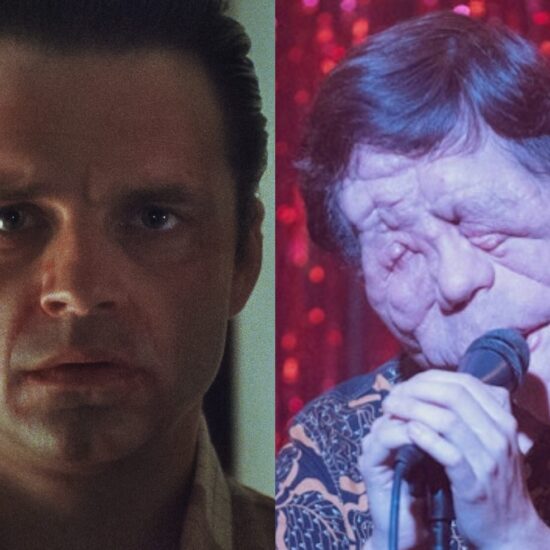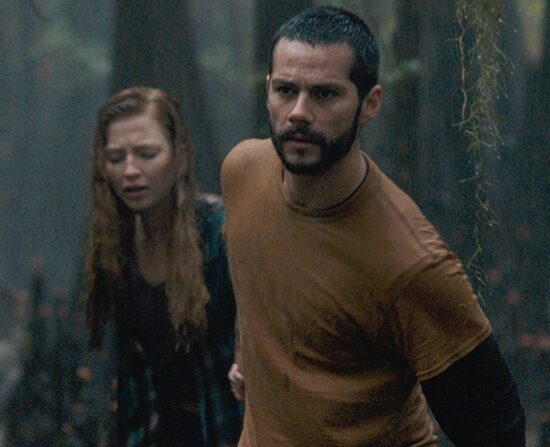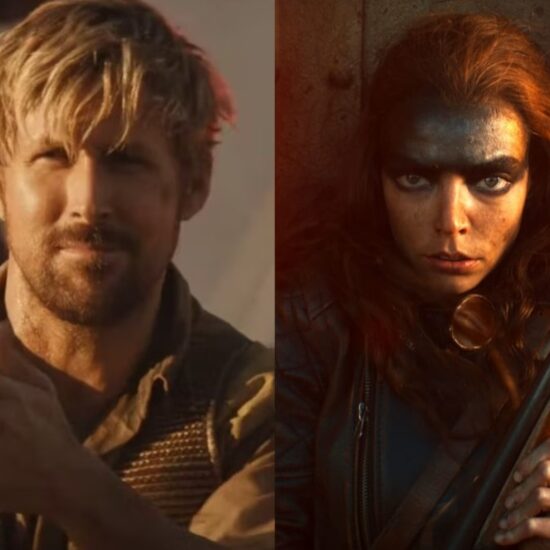
Marvel have a cinematic universe problem. Wakanda Forever is a testament to that; they’re far interested in setting up what comes next that the sequel to the 2018 megahit barely exists on its own – yes the point of the franchise is its connectivity, but that comes with a cost of identity. It’s something that the franchise was able to manage better in the first few phrases; The First Avenger and Thor existed in their own right whilst setting up what came next; but ever since then it’s got trickier. Riri Williams – as great as Dominique Thorne is in the role of a future Ironheart – feels like little more than a plot device; built up so Marvel can advertise the next series coming to a Disney+ subscription service near you. There’s lots of Phase 5 stuff in here too that’s created purely at the expense of Phase 4, which means that as a result, the Phase ends in a whimper rather than a bang.
The heavy shadow of this movie is Chadwick Boseman’s tragic passing early into production and the film deals with such a loss in an effective, emotional way that’s a befitting tribute and something that I wish Carrie Fisher had in The Rise of Skywalker. The cast give it their all and the film acts as a sense of grief, healing and reconstruction – the grieving process is one of the main arcs of the film and the emotional tribute to one of the greatest talents in the Hollywood industry is felt, heavily. It’s helped that Coogler is a director who knows how to make consequences feel real and matter; a rarity in the franchise – and the stakes across the board, both personal and in the grand scheme of things, leave a mark – the emotion that Letitia Wright, Winston Duke, Lupita Nyong’o, Danai Gurira, Angela Bassett – a cast of stellar, grand actors at the top of their game – display on the screen – is front and centre. The funeral is beautifully shot and heartbreaking – you’ll be in tears before the film’s opening credits roll; mercifully free of Marvel’s usual worst tendencies. Everything from the coffin to the costumes is conducted with an extreme sense of awareness and identity – a vast team of costume designers pull off such a grand job creating a microcapsule event that may be one of the most powerfully shot sequences of any blockbuster this year.
The plot of the film sees the emergence of Tenoch Huerta’s Namor and his people that threatens Wakanda which is reeling from the loss of its leader; and its protector. Nations such as France are trying to capitalise on the perceived vulnerability of the vibranium; and Coogler uses that to make a good statement on the attitude of Wakanda to the rest of the world – explaining why they are the way the way they are. It’s easy to see how Marvel might struggle with real world politics on a global scale – but it’s actually pretty good at this here; at least on a surface level. However, that doesn’t wipe it clean – Wakanda Forever‘s issues are presented as more difficult in its dealing with an American worldview; the CIA is given a clean slate through the lense of the “good cop working in a corrupt organisation” that Martin Freeman’s Ross represents – and it feels like much more of an issue this time around than the first film – downright uncomfortable at the best of times.
The film is visually striking – the cinematography depicted during the opening funeral by Autumn Durald is a real work of art and the underwater set-pieces are captured expertly well. Unfortunately; like the first film – Wakanda Forever can’t keep up its consistency throughout the runtime – the CGI is spotty and inconsistent, and the big finale feels like it was shot entirely against a giant greenscreen wall. It’s a shame as what came before in the first act is stunning and the early Boston chase sequence, just as with the first film – is thrilling even if it feels as more like a corporate dictated nonsense than most of the rest of the film – but Wakanda Forever suffers in the end from the same problem as every other Marvel movie; the CGI is an inconsistent mess at the best of times. Whilst the 2018 film had the strength to overcome the trappings of the rest of the genre, Wakanda Forever falls short every time it remembers it’s a Marvel movie.
When the film remembers to be its own thing it’s clearly at its best. Namor is excellent; cut from the same cloth but not quite as good as Killmonger; as is Letitia Wright’s Shuri – her arc is fantastically well executed on a personal, intimate level displaying her performance as one of the better in the franchise. It just suffers from being overstuffed, about forty minutes too long – there’s no need for Wakanda Forever‘s 162 minute runtime. Yes, it’s better than Thor: Love and Thunder (what isn’t?), but the film is so much caught up in being a backdoor pilot for a television show (that will be its own backdoor pilot for something else) that it can’t help but bogged down in the franchise nonsense that Coogler is usually better than. The personal stakes are the film’s greatest accomplishment – it doesn’t feel like a straight off the production line when everyone is allowed to display their own views on what the passing of T’Challa meant for them on a human level – and how they effect Wakanda shapes the rest of the film as these dilemmas run high; yet the effect is there – and it never really goes away.
Riri Williams’ Ironheart deserved better than being tacked on here; unnecessarily spreading the Iron Man franchise into yet another corner of the Marvel Universe like Marvel can’t really let go. It would’ve been better for both had Disney kept her first appearance for her television series – yet they can’t resist the temptation to make a messy, convoluted universe devoid of its own freedom so much more so.

















